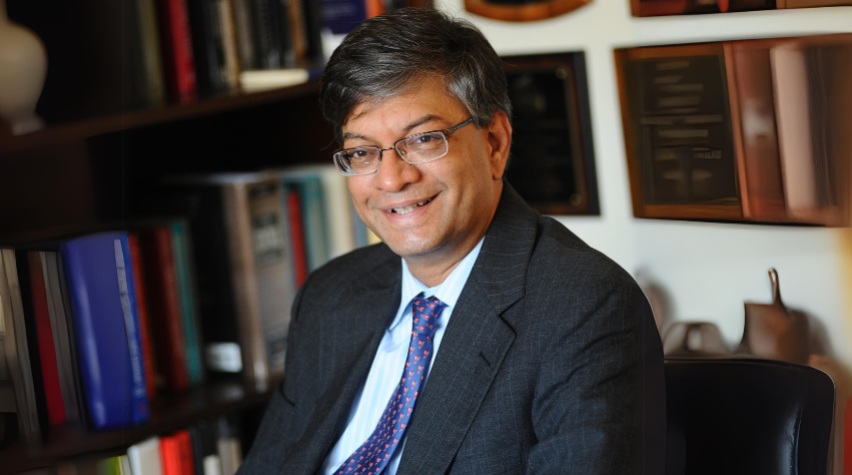
In this series, ChEnected is introducing readers to the recipients of AIChE’s 2024 Institute and Board of Directors’ Awards. As AIChE’s highest honors, the awards’ recipients are nominated by the community and voted upon by the members of AIChE’s Awards Committee.
Presented since 1935, the William H. Walker Award for Excellence in Contributions to Chemical Engineering Literature is named for William Hultz Walker (1969–1934), a founder of the chemical engineering discipline who in 1916 established the School of Chemical Engineering Practice at the Massachusetts Institute of Technology. The Walker Award is given to a member of AIChE who has made outstanding contributions to the field’s literature. The award is sponsored by John Wiley & Sons.

The recipient of the 2024 William H. Walker Award is Venkat Venkatasubramanian, the Samuel Ruben–Peter G. Viele Professor of Engineering in the Department of Chemical Engineering at Columbia University. He is being honored “for pioneering contributions in developing hybrid artificial intelligence modeling frameworks for process fault diagnosis, supervisory control, process safety, and the inverse design of materials.”
Dr. Venkatasubramanian and the other Institute and Board of Directors’ Award recipients will receive their honors during the 2024 AIChE Annual Meeting, October 27–31 in San Diego, California.
“I have worked in AI for over 40 years. It has been fascinating to witness the [recent] transformation from almost no one doing AI in chemical engineering to everyone [adopting it].”
About Venkat
Venkat Venkatasubramanian is known for developing artificial-intelligence (AI) frameworks in chemical engineering, particularly in process fault diagnosis, process safety, materials design, and pharmaceutical engineering. Many of his contributions were decades ahead of their time, anticipating developments that are only now being widely adopted.
“I have worked in AI for over 40 years, but no one ‘returned my calls’ for the first 35 years,” muses Venkatasubramanian. He adds that, early on, “Our AI-based contributions were not even considered proper process systems engineering and were largely ignored. But I am a contrarian and have always taken the road less traveled by.”
Reflecting on AI’s emergence in the past five years, Venkatasubramanian says, “It has been fascinating to witness the [recent] transformation from almost no one doing AI in chemical engineering to everyone [adopting it]. It is incredible.”
Venkat reflects on receiving the award
Acknowledging the Walker Award recognition for his work in AI, Venkatasubramanian says that AI has opened unimagined possibilities in all aspects of human endeavor. “However, to harness its potential safely and effectively, we need to go beyond large language models (LLMs) to large knowledge models (LKMs), which deeply incorporate fundamental knowledge and human expertise with data science,” he says. “This philosophy has guided our research for the past 40 years, and I am delighted to see that it is appreciated by the community at large.”
Venkatasubramanian says that he conducts his “curiosity-driven research in an impressionistic style, emphasizing conceptual issues over mere techniques.” His research interests range from AI to systems engineering, and from theoretical physics to economics. Among his publications, three of his papers are among the ten most-cited papers in the 46-year history of Computers & Chemical Engineering. His 2019 perspective on AI is the most-cited paper in the AIChE Journal, among the papers published in the past 20 years. He has also delivered more than 70 keynotes and plenary lectures about AI, 36 of which were presented in the past five years.
A Fellow of AIChE, he earned his B.Tech. degree at the University of Madras, India; his MS at Vanderbilt University; and his PhD at Cornell University. His recent book, “How Much Inequality Is Fair? Mathematical Principles of a Moral, Optimal, and Stable Capitalist Society,” was published in 2017.
ChEnected will be introducing all the 2024 Institute and Board of Directors’ Award recipients. Visit ChEnected regularly to meet this year’s honorees in this series.


